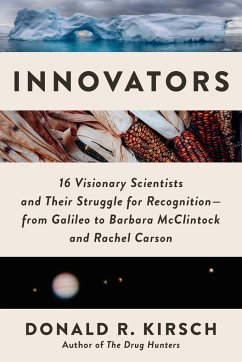Scientific breakthroughs that changed the way we understand the world-and the fascinating stories of the scientists behind them Some of the most significant breakthroughs in science don't receive widespread recognition until decades later, sometimes after their author's death. Nobel Prize-winner Max Planck, whose black-body radiation law established the discipline of quantum mechanics, stated this as what has become known as Planck's principle, commonly summarized as "Science progresses one funeral at a time." In other words, for some truly groundbreaking discoveries, a new consensus builds only when proponents of the old consensus die off. Breakthrough discoveries require a paradigm shift, and it takes time and new minds for the new paradigm to be adopted. In Innovators, Donald Kirsch tells the stories of sixteen visionary scientists who suffered this fate, some now famous like Max Planck himself, Galileo, and Gregor Mendel, and some less well known. Among them are Barbara McClintock who, working with Indian corn, discovered transposons, also known as jumping genes, which provide a major mechanism driving biological evolution; Rachel Carson, catalyst for the environmental movement; and Roger Revelle, the climatologist whose findings were the first to be described by the term "global warming." The breakthroughs cover fields from biology to medicine to physics and earth sciences and include the discovery of prions, life-changing treatments such as drugs for high blood pressure, ulcers, and organ transplantation; the process of continental drift; and our understanding of how molecules form matter.
Hinweis: Dieser Artikel kann nur an eine deutsche Lieferadresse ausgeliefert werden.
Hinweis: Dieser Artikel kann nur an eine deutsche Lieferadresse ausgeliefert werden.








